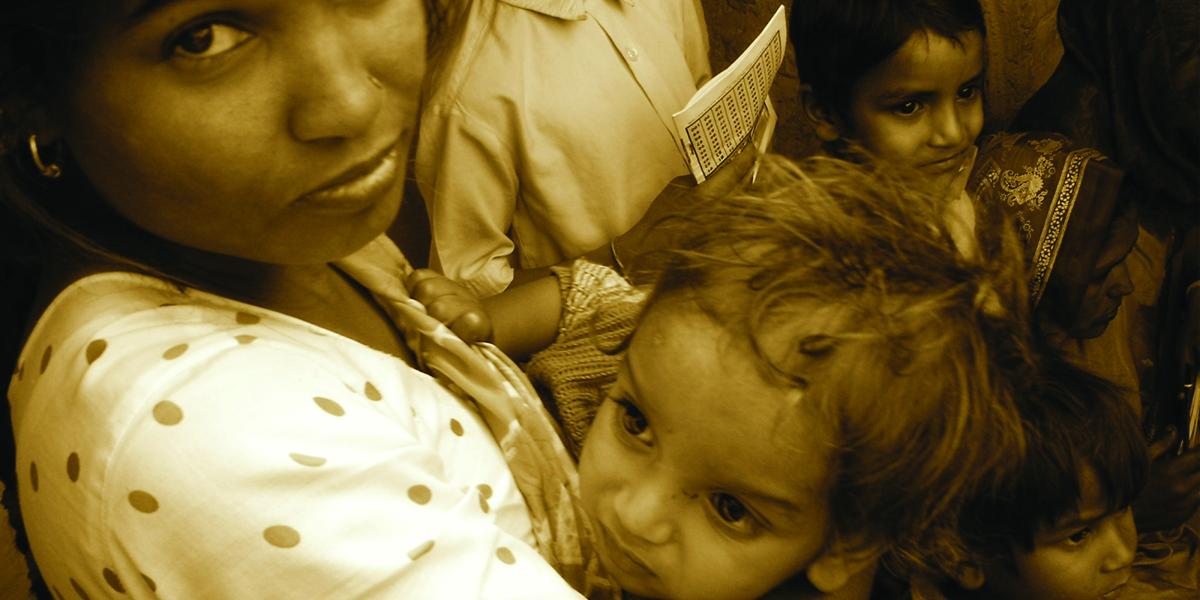Learning in a Global Classroom
Things were falling into place for Maria Perez-Patron as she planned a trip last semester to Mexico's Yucatan region to do field work on migration patterns. An immigration studies program at the University of California at San Diego (UCSD) had invited her to join a team there in January, and her Bloomberg School adviser urged her to go, saying the work would be a valuable experience in data collection.
There was one missing piece: "I had all these plans," recalls Perez-Patron, a doctoral candidate in Population and Family Health Sciences, "but then realized I wouldn't be able to pay for it."
Her solution came in the form of a new funding source at the Bloomberg School: the Global Field Experience Fund, established last year by Dean Michael J. Klag. Perez-Patron was among the inaugural group of 25 Bloomberg School students who received individual awards of $2,000 to fund international and domestic field experience for academic credit during the January semester break (and beyond, for some students).
For Perez-Patron, the grant covered her major expenses, including airfare and lodging. She spent two weeks as part of a UCSD research team surveying households in the town of Tunkas. Their goal: to determine how migration affects the composition of families, and the effects on health when extended family networks break down.
"It was exactly what I was looking for," Perez-Patron says of the award, adding that she plans to build on her work in Tunkas to develop her doctoral dissertation. "I'm sure it's going to make a huge difference in defining my thesis project."
The Global Field Experience Fund is one of two programs initiated by the Bloomberg School this academic year to provide students with firsthand experiences in public health. The Capstone Development Awards, which are limited to students in the Master of Public Health program, allocated $21,000 in grants to 12 students to support their final research project, known as a "capstone." Most of the recipients completed their fieldwork in January.
"The vision and mission of all of this was to get our students out of the classroom and into the field interacting and working in a different setting," says Ron Brookmeyer, PhD, chair of the MPH program. Although the award amounts are modest, "students figure out how to use the money to get the biggest bang for the buck," he says.
School officials said that students provided the impetus for the creation of both award funds. They wanted to work on public health projects during the winter semester break, but financial support was in short supply. Impressed by the students' ideas, Brookmeyer funded the Capstone awards through an alumni annual giving account that targets funds to the MPH program. The School's annual gifts fund financed the Global Field Experience program.
Both programs supported research that spanned the globe and focused on a variety of disciplines—from "Improving Zinc Supplementation in Delhi, India" to "Insulin Resistance in a Multiethnic Hawaiian Population."
Capstone award recipient Alicen Burns Spaulding, an MPH student, traveled to Buenos Aires, Argentina, where she interviewed government officials, employees of nonprofit agencies, commercial sex workers and others for a stakeholder analysis of HIV prevention efforts. The city has made significant progress in reducing AIDS cases, and Spaulding wanted to explore issues of funding, the programs' successes and obstacles, and levels of coordination for a comparison with U.S. efforts.
Without the grant, Spaulding says the quality of her research would have suffered. "They met me and they trusted me," she says of her interview subjects. "I think they said things they wouldn't have said over the phone."
"I'm in awe of these students," Brookmeyer says. "There is so much energy to get out and make change."
